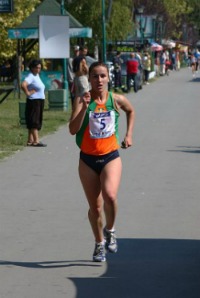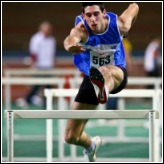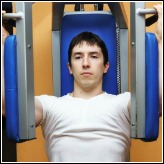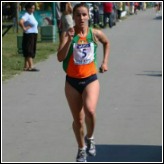How to Design a Sports Nutrition Diet?
Athletes need a healthy sports nutrition diet if only because they burn a lot of energy and thus require more nutrition. But a healthy diet is much more important than just our calorific needs, which after all provides the fuel that drives our activities.

The nutrient athletes extract from their diets is equally as important and probably more so. A healthy diet is not a cure all or a silver bullet, it can’t make run faster, jump higher or throw further, but it is a central support mechanism in being the best you can physically be. If you can get your diet right, it will fuel your training and help you achieve your goal.
The key to designing a healthy and balanced diet is to consume a wide variety of foods which will meet your carbohydrate, protein and fat needs for everyday living and exercise.
But what exactly makes a good sports nutrition diet? Here are some tips to help you design a good diet for athletes.
Carbohydrates
Carbohydrates are the key nutrient for the body’s energy supply. All sports people should make carbohydrate rich foods the primary focus of their diets. Your carbohydrate needs can be calculations in terms of the athlete’s body weight and levels of energy expenditure.
So depending on your weight and your level of energy expenditure, the following rule should apply:
- Moderate duration exercise (1 hour), low intensity training, 5-7 grams of carbohydrates per kilo of body weight per day
- Moderate to heavy duration training, 7-10 grams of carbohydrates per kilo of body weight per day
The bulk of your carbohydrate intake should come from cereals and other starchy foods such as bread, potatoes, rice and pasta. There are also less starchy sources such as vegetables, sweet potatoes, plantains and peas, beans and lentils. The remainder can come from more traditionally sugary sources such as fruit and juices.
Protein
Due to the increased rate of protein breakdown during exercise, it is a key nutrient in sports and exercise. Protein is required for building and repairing muscles. Because of its importance many sports people believe that they have to consume a lot of it.
The recommended daily intake of protein, expressed in grams per kilo of body weight, is 0.75g for someone with low levels of activities, this goes up to 1.0g -1.2g for someone exercising about one hour per day and goes up further to 1.2g – 1.7g for endurance and strength and speed athletes.
Research has shown that most people with a normal diet consume more than the recommended daily intake of a hard working athlete. Even a well chosen vegetarian or vegan diet can met most serious athlete’s protein needs. When making your choices regarding sources of protein certainly, animal sources are richer than vegetable sources.
When designing a sports nutrition diet, it is also best to get lean proteins, like skinless poultry, fish, egg white, nuts, beans, and low fat milk.
Water
When we exercise, our muscles use only about 25 percent of the energy for the work. The rest of the energy is loss as heat, this is why we get hot when we workout. The heat is taken up by the blood, the blood flows to the skin surface and is evaporated as sweat.
Sweat comes from water and since it is being lost to the atmosphere, it must be replaced. You cannot perform well if your body is not hydrated. Research has shown that only 2 percent lose in body weight due to fluid loss can impair exercise and performance significantly. Dehydrated muscles will tend to cramp more often due to loss of sodium and other salts.
So, make sure you are not only replacing water as part of your hydration strategy, mix it up a little with some carbohydrates and salts.
Proper Amount
How much food an athlete needs will depend a lot on their energy needs and there is no simple way to predict this. The athlete’s energy needs depend not only on the demands of the training and competition program, but will also depend on the lifestyle of the athlete outside the sport. The difference will depend on whether you are training long and hard or whether you train infrequently with short easier sessions.
And so, another factor for a good sports nutrition diet is to monitor the proper amount of food in your diet. Only keeping an eye on your body weight is not a particularly accurate method of ensuring that there is a balance in your energy intake.
Body weight alone does not provide you with information about lean body mass compared with fat stores. And so body weight along with skin fold measuring is a good way of keeping your eye on the proper amount of nutrients intake versus energy expenditure.
Sign Up For The Latest Track And Field News And Improve Your Athletic Performance!
From "How to Design a Sports Nutrition Diet" To " Faster, Stronger, Better – Your Shortcut To Improved Athletic Performance"
More information about a good sports nutrition diet in the Sports Nutrition Guide







